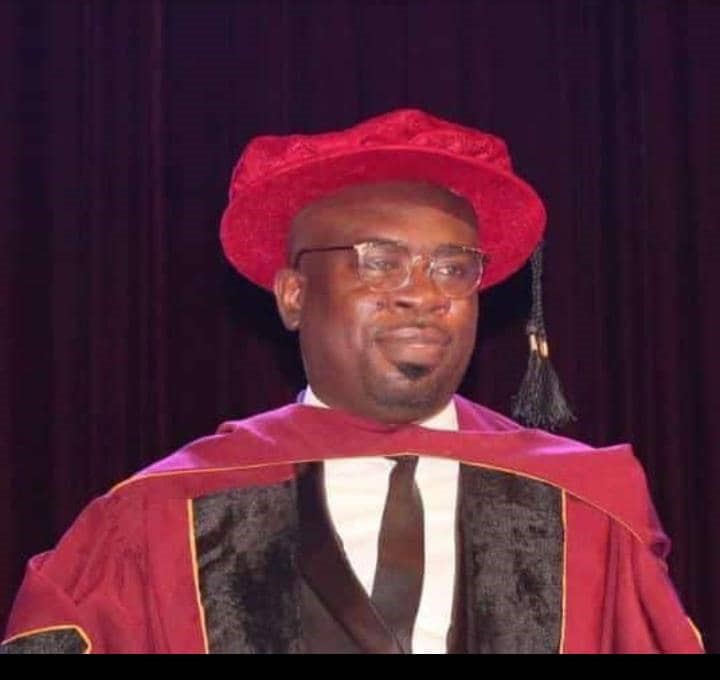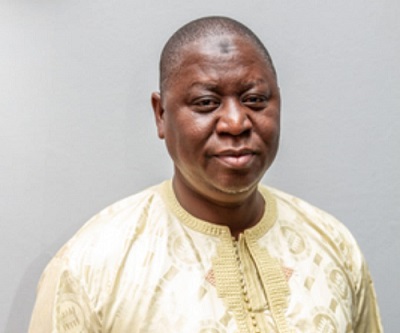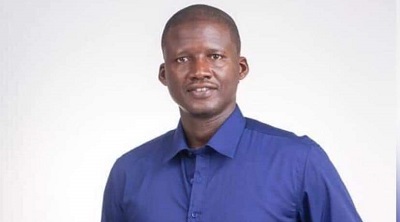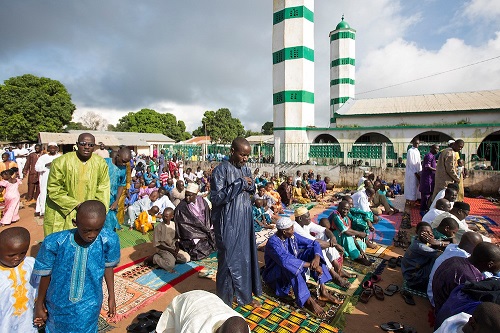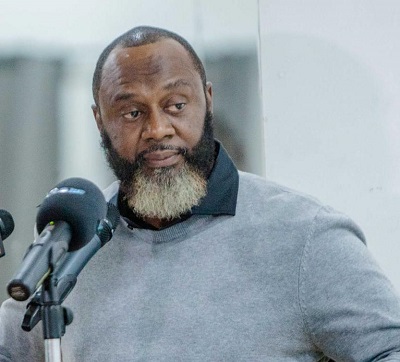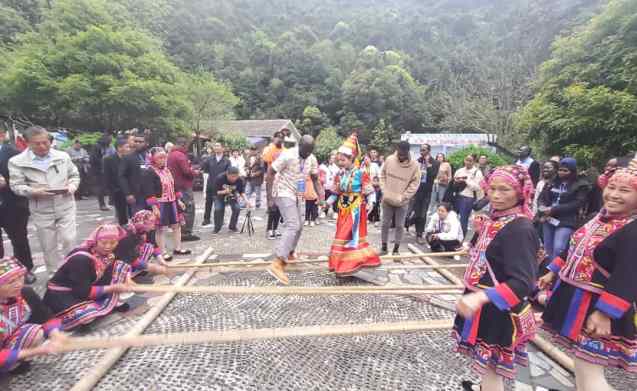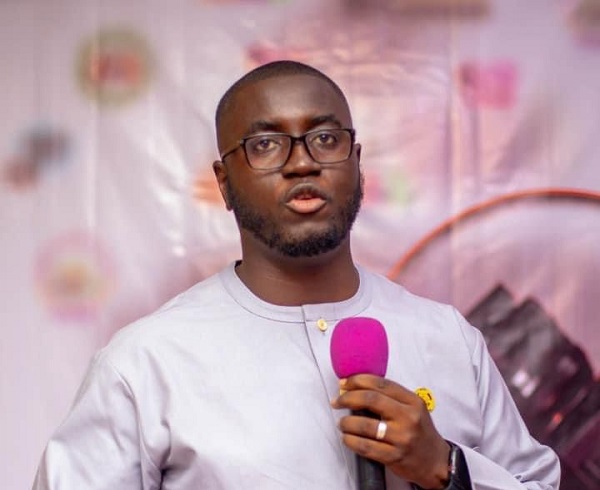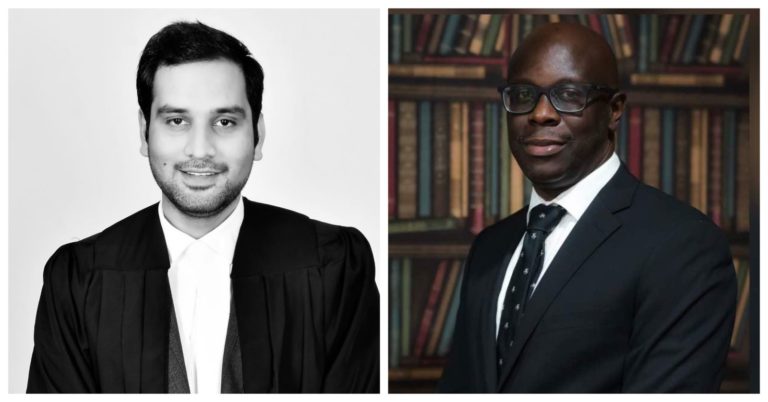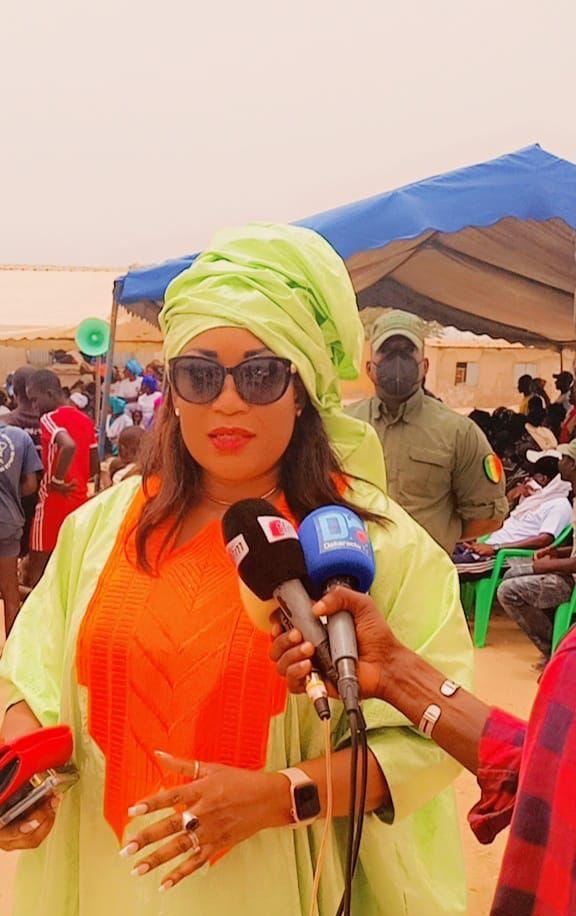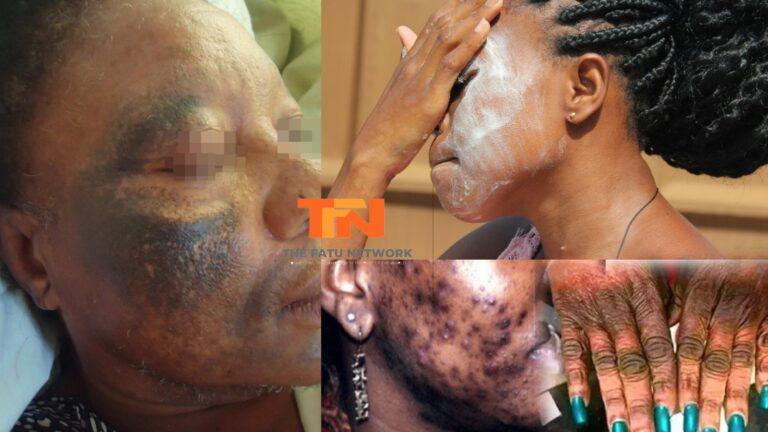By Prof. Raphael Nyarkotey Obu
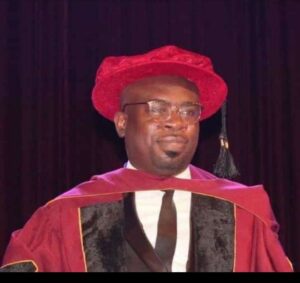
Ramadan supports brain function, improves longevity

Ramadan in the Gambia
A study carried out by scientists in the USA found that the mental focus achieved during Ramadan increases the level of brain-derived neurotrophic factor, which causes the body to produce more brain cells, thus improving brain function. Though the purpose of fasting should purely be faith, obedience, and seeking the mercy of Allah, the huge array of scientific and health benefits that this month brings along should again aid in strengthening the faith of a believer. A large number of studies conducted over the years by Muslim and non-Muslim researchers alike talk about the scientific benefits of Ramadan fasting (Hourani et al. 2009; Rouhani and Azadbakht, 2014; Rahman. S, 2022). Hence, in this article, I examine the science behind Muslims’ fasting period: refrain from eating, drinking, and having sex during the entire daytime for one month, every year.
Fasting, Motivation
Fasting has been applied for diverse reasons. But in the case of Ramadan, the purpose of fasting should purely be faith, obedience, and seeking the mercy of Allah. But there are other reasons people also opt for fasting: For instance, Wikipedia (2022) notes that fasting was historically studied in a population under famine and hunger strikes, which led to the alternative name of ‘starvation diet’, as a diet with 0 calorie intake per day. For political reasons, it is understood that fasting is often used as a tool to make a political statement, to protest, or to bring awareness to a cause.
A hunger strike is a method of non-violent resistance in which participants fast as an act of political protest, to provoke feelings of guilt, or to achieve a goal such as a policy change. A spiritual fast incorporates personal spiritual beliefs with the desire to express personal principles, sometimes in the context of social injustice (Garcia, 2007).
A retrospective study by Harinarayanan, (1986) opined that the political leader Gandhi undertook several long fasts as political and social protests. Gandhi’s fasts had a significant impact on the British Raj and the Indian population generally.
BBC News (2019) also explained that in Northern Ireland in 1981, a prisoner, Bobby Sands, was part of the 1981 Irish hunger strike, protesting for better rights in prison. Sands had just been elected to the British Parliament and died after 66 days of not eating. His funeral was attended by 100,000 people and the strike ended only after nine other men died. In all, ten men survived without food for 46 to 73 days.
Shaw, (2008) also asserts that César Chávez undertook several spiritual fasts, including a 25-day fast in 1968, promoting the principle of non-violence, and a fast of ‘thanksgiving and hope’ to prepare for pre-arranged civil disobedience by farm workers.
A similar study by Espinosa and Garcia (2008) also confirmed that Chávez regarded a spiritual fast as “a personal spiritual transformation”. However, Shaw (2008) is of the view that other progressive campaigns have adopted the tactic.
For medical application, Norman(2003) holds the view that fasting is always practised before surgery or other procedures that require general anaesthesia because of the risk of pulmonary aspiration of gastric contents after induction of anaesthesia (i.e., vomiting and inhaling the vomit, causing life-threatening aspiration pneumonia). Additionally, certain medical tests, such as cholesterol testing (lipid panel) or certain blood glucose measurements require fasting for several hours so that a baseline can be established. In the case of a lipid panel, failure to fast for a full 12 hours (including vitamins) will guarantee an elevated triglyceride measurement( http://www.reducetriglycerides.com/lower_triglycerides_print.htm, 2010).
Despite its recent surge in popularity, fasting is a practice that dates back centuries and plays a central role in many cultures and religions.
Fasting, the Science
Regulates blood sugar
From empirical literature, studies have found that fasting may improve blood sugar control, which could be especially useful for those at risk of diabetes (Link, 2018).
For instance, one small study involving 10 people by Arnason et al. (2017) with type 2 diabetes demonstrated that short-term intermittent fasting significantly decreased blood sugar levels. Another article by Gunnars (2020) asserts that both intermittent fasting and alternate-day fasting were as effective as limiting calorie intake at reducing insulin resistance (Adda and Kubala, 2020).
A previous review by Gunnars (2019) is further of the view that decreasing insulin resistance can increase your body’s sensitivity to insulin, allowing it to transport glucose from your bloodstream to your cells more efficiently.
Coupled with the potential blood sugar-lowering effects of fasting, this could help keep your blood sugar steady, preventing spikes and crashes in your blood sugar levels. A retrospective study by Heilbronn et al. (2005) found that the impact of fasting on blood sugar may differ between men and women. The study demonstrated that practising alternate-day fasting impaired blood sugar control in women but had no effect in men.
Fasting fights Inflammation
On the other hand, acute inflammation is a normal immune process used to help fight off infections while chronic inflammation can have serious consequences for your health. Hunter’s (2012) study demonstrates that inflammation may be involved in the development of chronic conditions, such as heart disease, cancer, and rheumatoid arthritis. Given this, one review by Spritzler (2018) found that fasting can help decrease levels of inflammation and help promote better health.
Faris et al. (2012) study which involved 50 healthy adults found that intermittent fasting for one month significantly decreased levels of inflammatory markers. A similar small retrospective study by Aksungar et al. (2007) discovered the same effect when people fasted for 12 hours a day for one month.
The interesting thing is that one prospective animal study by Choi et al. (2016) demonstrates that following a very low-calorie diet to mimic the effects of fasting reduced levels of inflammation and was beneficial in the treatment of multiple sclerosis – a chronic inflammatory condition.
Fasting supports Cardiovascular Health
Interestingly, studies have found that incorporating fasting into daily activities could improve our heart health. One review by Kerri-Ann (2018) found that eight weeks of alternate-day fasting reduced levels of ‘bad’ LDL cholesterol and blood triglycerides by 25% and 32% respectively (Link, 2021).
Another retrospective study by Beleslin et al. (2007) in 110 obese adults found that fasting for three weeks under medical supervision significantly decreased blood pressure, as well as levels of blood triglycerides, total cholesterol, and ‘bad’ LDL cholesterol.
Another prospective study by Horne et al. (2008) involving 4,629 people linked fasting with a lower risk of coronary artery disease, as well as a significantly lower risk of diabetes, which is a major risk factor for heart disease.
Fasting supports brain function and averts Neurodegenerative Disorders
Though studies are limited to animal research, several studies have found that fasting could have a powerful effect on brain health. For instance, Li et al.,(2013) study found that practising intermittent fasting for 11 months improved both brain function and brain structure. Other animal studies have reported that fasting could protect brain health and increase the generation of nerve cells to help enhance cognitive function (Lee et al, 2000; Tajes et al, 2010). Link (2018) explained that because fasting may also help relieve inflammation, it could also aid in preventing neurodegenerative disorders.
Two animal studies, (Dua and Mattson 1999; Halagappa et al.,2007) found that fasting may protect against and improve outcomes for conditions such as Alzheimer’s disease and Parkinson’s. Nevertheless, more studies are needed to evaluate the effects of fasting on brain function in humans (Link, 2018).
Fasting supports weight loss and boosts metabolism
Gunnar’s (2020) review asserts that many dieters pick up fasting looking for a quick and easy way to lose weight. Link (2018) hold the view that abstaining from all or certain foods and beverages should decrease your overall calorie intake, which could lead to increased weight loss over time. A previous study by Zauner et al, (2000) also found that short-term fasting may boost metabolism by increasing levels of the neurotransmitter norepinephrine, which could enhance weight loss. One review by Tinsley and Bounty (2015) demonstrated that whole-day fasting could reduce body weight by up to 9% and significantly decrease body fat over 12–24 weeks.
Another review by Varady (2011) also found that intermittent fasting over 3–12 weeks was as effective in inducing weight loss as continuous calorie restriction and decreased body weight and fat mass by up to 8% and 16% respectively. The same author further found that fasting is more effective than calorie restriction at increasing fat loss while simultaneously preserving muscle tissue.
Fasting increases growth hormone secretion
Human growth hormone (HGH) is a type of protein hormone that is central to many aspects of your health. A review by Mawer (2019) found that fasting could naturally increase HGH levels. One study by Salgin et al. (2012) in 11 healthy adults demonstrated that fasting for 24 hours significantly increased levels of HGH. Another retrospective small study by Hartman et al. (1992) in nine men found that fasting for just two days led to a 5-fold increase in the HGH production rate. A similar study by Lanzi et al. (1992) also found that fasting may help maintain steady blood sugar and insulin levels throughout the day, which may further optimize levels of HGH, as some research has found that sustaining increased levels of insulin may reduce HGH levels.
Fasting averts ageing and promotes longevity
One retrospective study by Goodrick et al. (1982) in rats that fasted every other day experienced a delayed rate of ageing and lived 83% longer than rats that didn’t fast. Three animal studies by (Goodrick et al.1983; Honjoh et al,2009; Sogawa et al.2000) experienced similar findings, reporting that fasting could be effective in increasing longevity and survival rates.
However, current research is still limited to animal studies. Further studies are needed to understand how fasting may impact longevity and ageing in humans.
Fasting fights cancer and increases the effectiveness of chemotherapy
Animal and test-tube studies indicate that fasting may benefit the treatment and prevention of cancer. Rocha et al. (2002) involving a single rat study found that alternate-day fasting helped block tumour formation. Another test-tube study by Lee et al (2012) found that exposing cancer cells to several cycles of fasting was as effective as chemotherapy in delaying tumour growth and increased the effectiveness of chemotherapy drugs on cancer formation. Unfortunately, most research is limited to the effects of fasting on cancer formation in animals and cells (Link, 2018).
A side effect of Fasting
Farooq et al. (2021) found that fasting during Ramadan impacts the daily physical activity behaviour among Muslims. Interventions should focus on creating awareness of the importance of maintenance of adequate physical activity for adults fasting during Ramadan.
In a previous study by Ali and Abizari(2018) among schooling Ghanaian adolescents who fast during Ramadan, fasting was characterized by marked changes in usual food patterns, increased dietary diversity, and significant body weight loss.
Another study by Meo and Hassan, (2015) also found that Ramadan fasting is safe for all healthy individuals, but those with various illnesses such as diabetes mellitus, coronary artery disease, and renal and eye illness should consult their physicians and firmly follow the scientific recommendations.
In two studies, Marshall (2012; Moore and Jason, 2016) hold the view that in rare occurrences, fasting can lead to the potentially fatal refeeding syndrome upon reinstatement of food intake due to electrolyte imbalance.
Wikipedia (2022) defines refeeding syndrome as a metabolic disturbance that occurs as a result of the reinstitution of nutrition in people and animals who are starved, severely malnourished, or metabolically stressed because of severe illness. When too much food or liquid nutrition supplement is eaten during the initial four to seven days following a malnutrition event, the production of glycogen, fat, and protein in cells may cause low serum (blood) concentrations of potassium, magnesium, and phosphate.
Take Home
Studies have demonstrated the many impacts of fasting from different perspectives; health and spiritual. Cheers!
NB:
Prof. Nyarkotey has strict sourcing guidelines and relies on peer-reviewed studies, academic research institutions, and medical associations to justify his write-ups. My articles are for educational purposes and do not serve as Medical advice for Treatment. I aim to educate the public about evidence-based scientific Naturopathic Therapies.
The writer is a Professor of Naturopathic Healthcare, a Medical Journalist, and a science writer. President, Nyarkotey College of Holistic Medicine & Technology (NUCHMT), African Naturopathic Foundation, Ashaiman, Ghana. E. mail: [email protected]. Currently, BL candidate at the Gambia Law School, Banjul, The Gambia.





